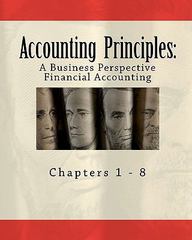Question
1. Both reasons for regulation, the theory of market failure and the public-choice theory of rent-seeking, explain the value of those regulations in terms of
1. Both reasons for regulation, the theory of market failure and the public-choice theory of rent-seeking, explain the value of those regulations in terms of the public benefit of those government interventions.
- a. True
- b. False
2. What two theories does the text cite for government regulation of markets?
- a. Economies of scale and high sunk costs
- b. Diseconomies of scale and low sunk costs
- c. Market-failure effects on efficiency and public-choice rent-seeking
- d. Diminishing marginal product of labor and diminishing marginal utility
3. Static efficiency measures how well an economy performs at a given time with given resources and technology; dynamic efficiency measures the rate of growth in production possibilities and prosperity.
- a. True
- b. False
4. Much of traditional economic theory accepts that perfectly competitive markets are the most efficient in the static sense.
- a. True
- b. False
5. Joseph Schumpeter explained that competition among actual entrepreneurs encourages dynamic efficiency through innovation and technological change.
- a. True
- b. False
6. Traditional antitrust policy tends to oppose a Jeffersonian preference for dispersed economic power.
- a. True
- b. False
Step by Step Solution
There are 3 Steps involved in it
Step: 1

Get Instant Access to Expert-Tailored Solutions
See step-by-step solutions with expert insights and AI powered tools for academic success
Step: 2

Step: 3

Ace Your Homework with AI
Get the answers you need in no time with our AI-driven, step-by-step assistance
Get Started


